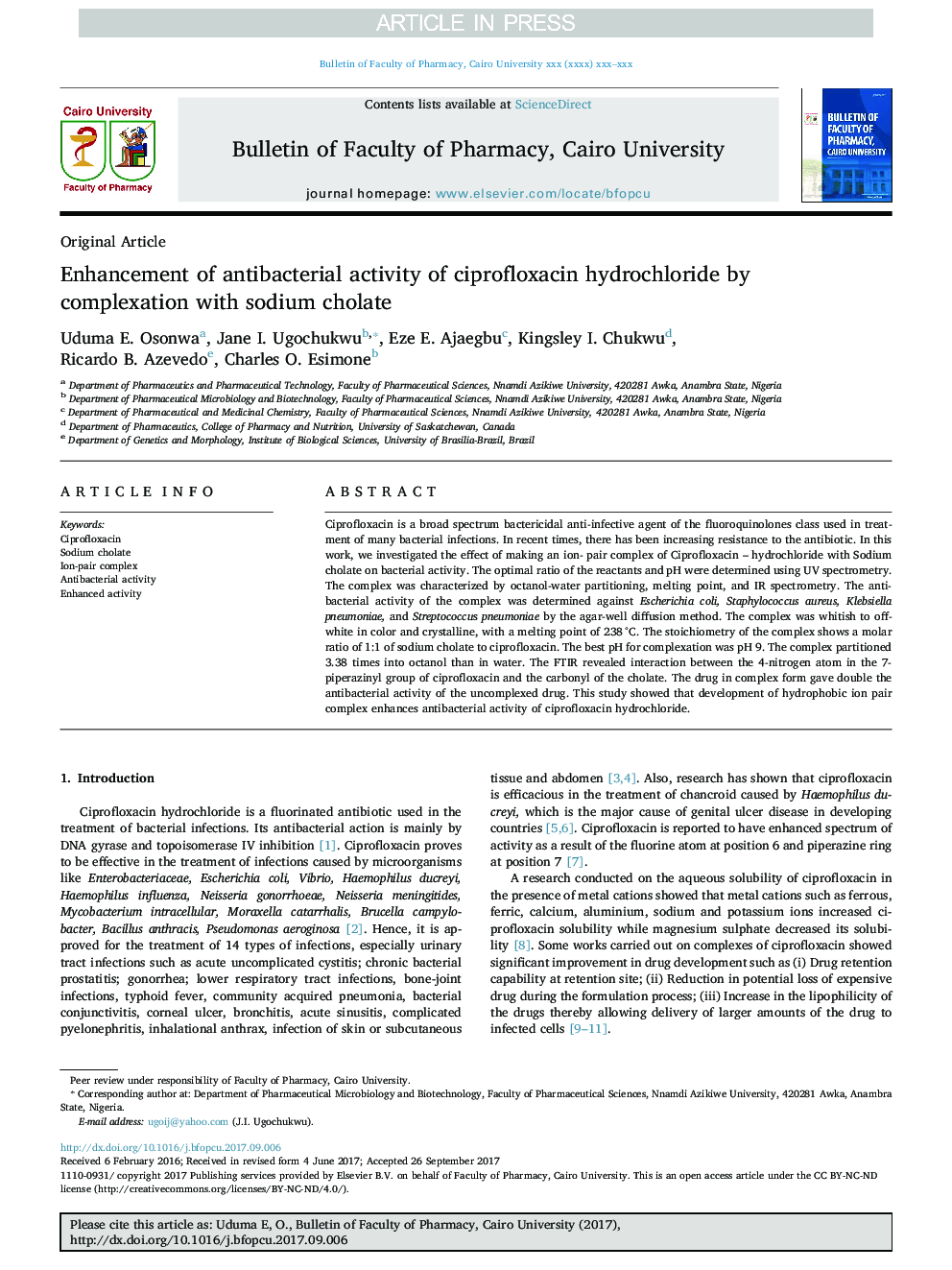| Article ID | Journal | Published Year | Pages | File Type |
|---|---|---|---|---|
| 8508986 | Bulletin of Faculty of Pharmacy, Cairo University | 2017 | 5 Pages |
Abstract
Ciprofloxacin is a broad spectrum bactericidal anti-infective agent of the fluoroquinolones class used in treatment of many bacterial infections. In recent times, there has been increasing resistance to the antibiotic. In this work, we investigated the effect of making an ion- pair complex of Ciprofloxacin - hydrochloride with Sodium cholate on bacterial activity. The optimal ratio of the reactants and pH were determined using UV spectrometry. The complex was characterized by octanol-water partitioning, melting point, and IR spectrometry. The antibacterial activity of the complex was determined against Escherichia coli, Staphylococcus aureus, Klebsiella pneumoniae, and Streptococcus pneumoniae by the agar-well diffusion method. The complex was whitish to off-white in color and crystalline, with a melting point of 238â¯Â°C. The stoichiometry of the complex shows a molar ratio of 1:1 of sodium cholate to ciprofloxacin. The best pH for complexation was pH 9. The complex partitioned 3.38 times into octanol than in water. The FTIR revealed interaction between the 4-nitrogen atom in the 7-piperazinyl group of ciprofloxacin and the carbonyl of the cholate. The drug in complex form gave double the antibacterial activity of the uncomplexed drug. This study showed that development of hydrophobic ion pair complex enhances antibacterial activity of ciprofloxacin hydrochloride.
Related Topics
Health Sciences
Pharmacology, Toxicology and Pharmaceutical Science
Drug Discovery
Authors
Uduma E. Osonwa, Jane I. Ugochukwu, Eze E. Ajaegbu, Kingsley I. Chukwu, Ricardo B. Azevedo, Charles O. Esimone,
